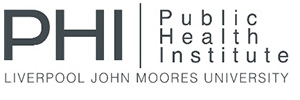Drugs
Providing insights into drug use
Supporting evidence based drugs policy through epidemiology, monitoring, evidence review, intervention evaluation and primary research.
Research in this area began with the development of local monitoring systems for drug treatment and needle exchanges, and this early work informed the sophisticated national monitoring systems we see today. In parallel streams of work, the Public Health Institute’s realistic evaluation approach has helped a variety of stakeholders understand the impact that their work is having and how best to improve services. Primary research has provided insights into a variety of substance related topics, particularly in priority groups such as young people, drug injectors, and families affected by drugs.
Our research has contributed to the development of two successive UK National Drug Strategies and a number of national and international guidance. Systematic reviews of evidence for the effectiveness of drug prevention interventions, and optimal provision of needle and syringe exchange programmes underpinned National Institute for Health and Clinical Excellence (NICE) guidance in these areas. The Public Health Institute also coordinates the UK arm of the European Monitoring Centre for Drugs and Drug Addiction’s (EMCDDA) early warning system on psychoactive drugs and this intelligence also feeds into UK monitoring systems.
We are responsible for producing estimates of the prevalence of opiate and/or crack cocaine use in England. Information about the number of people who use these drugs is key to formulating effective policies for tackling drug-related harm and also helps inform service provision at the local level. We are taking the lead in the EMCDDA’s problem drug use indicator, collating opiate use prevalence estimates across the four nations within the UK. We have also developed research specialisms in novel psychoactive drugs (‘legal highs’). As well as coordinating the UK arm of the EU Early Warning System on Novel Psychoactive Drugs, the Institute’s policy critiques, forensic analyses, and evidence reviews have contributed to international discussions on this emerging public health priority.















